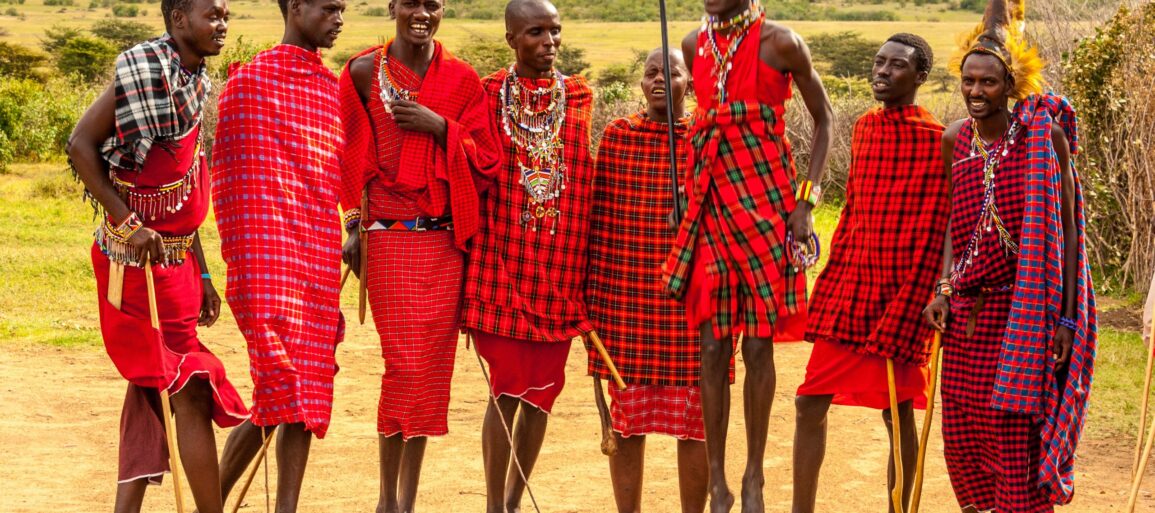In less than a year after Tanzania authorities forcefully relocated 70,000 members of the Maasai Community from Loliondo and Ngorongoro conservation areas, a new controversy has emerged in Zanzibar where the government want the community to drop their traditional attire and embrace Western clothing.
The latest controversy between the Maasai and the Zanzibar authorities was sparked by a video that went viral in early February showing a group of Maasai guards at Kiwengwa Beach in Zanzibar fighting with private guards using traditional sticks. The fighting happened in the Southern province of the island which is a major attraction to tourists.
The police arrested some of them and confiscated their traditional sticks and clubs and the authorities in the southern province now say that Maasais walking in public with their stick and clubs is now considered a threat
Daniel Shila, the Assistant Commander of Police (ACP) in the southern province said that the video has caused fear among locals and tourists and urged the public not to repost the video because the incident happened last year and those who were involved were arrested and prosecuted.
The Maasai—who are mainly found in northern Tanzania and southern Kenya—have maintained their customs, culture and traditional dressing even as other communities in Tanzania have abandoned their traditional ways of dressing in favour of Western dressings.
The Maasai identity is often defined by colourful beaded necklaces, an iron rod (as a weapon) and red striped Shuka (cloth). While red is the most common colour, the Maasai also use blue, striped, and checkered cloth to wrap around their bodies.
Red is the colour of blood, bravery, and unity. Additionally, red is associated with the Maasai ethnic group; in particular, the Morans (warriors) like to wear red Shukas, which are traditional garments patterned with checkers. The Maasai men often carry with them a stick—often used to herd livestock—a club to ward off wild animals and sometimes a sword tied to the waist which they use to cut meat while herding in the plains for days.
Maasai Activist, Mwana Kwetu from Arusha said that some people want to paint the Maasai in a bad light as a war-like community when they carry traditional sticks and clubs which are part of their attire, pride and culture. “The Maasai are not people who like fighting. Out attire is part of our culture which we have maintained for centuries despite pressure from various religions and other communities to force are to adopt the Western form of dressing,” said Mr Kwetu.
He said that the government should not look for unnecessary conflict with the Maasai who have lived peacefully with the wild animals and protected the environment for years.
“There are some people who look down upon us as uneducated and ignorant, yet the Maasai have been tolerant of some of the behaviours that are offensive to their culture. Don’t destroy the pride of the Maasai which is one of the few communities in Africa that have maintained their tradition,” he said.
Several Maasai leaders complained that there is a conspiracy to make them look like non-humans among other communities in Tanzania. The Maasai in Zanzibar are under pressure to drop their traditional attire and embrace Western types of dressing.
Rimba Kopere, a Maasai activist from Tanga said the video has painted the community in bad light, yet their traditions do not allow a Maasai to use the club, the stick and the sword indiscriminately.
“There must be a reason to use these weapons and anybody who uses them must explain to the elders. That is why we have survived with these weapons for centuries while other communities are prohibited from carrying weapons,” said Mr Kopere.
He said that after the Maasai were displaced from Ngorongoro, the recent decision to deny the Maasai their cultural implements could create a wrong impression among the community that they are being discriminated against.
The Maasai are one of the very few tribes that still practice the majority of its customs, way of life, and folklore. Like the animals they coexist with, the Maasai require a large amount of land.
The Maasai are pastoral and semi-nomadic people who herd goats and cattle for a living, in contrast to many other tribes in Tanzania and Kenya.
By Fred Oluoch


